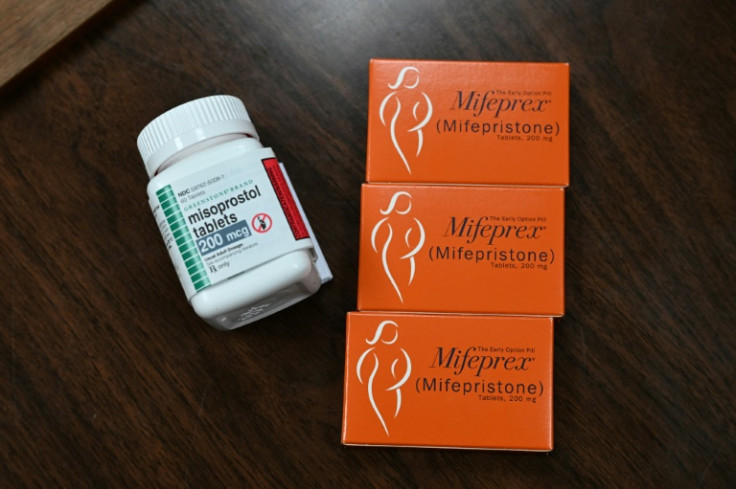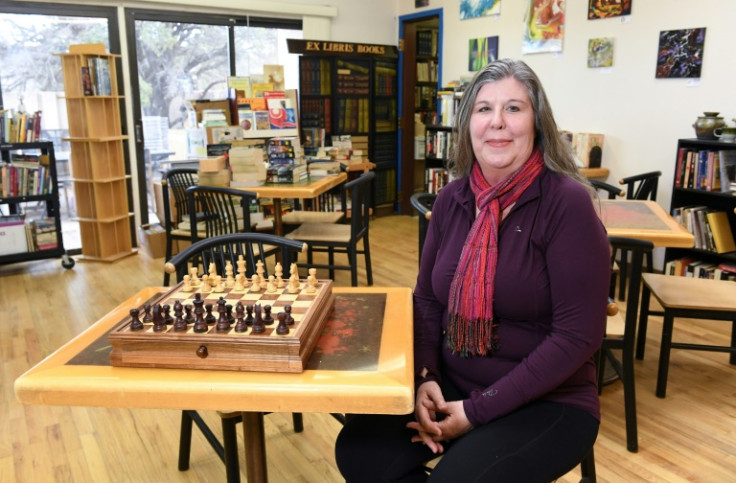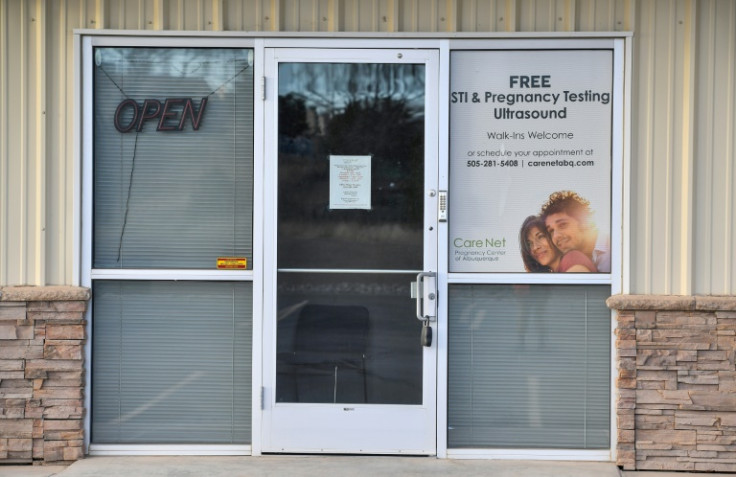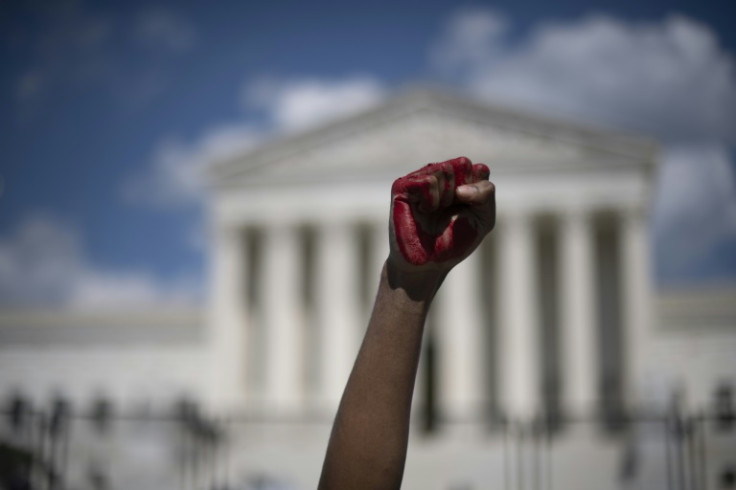Small US Town A 'Pawn' In Push To Ban Abortions Nationwide

When Marcia Smith moved to a small town in New Mexico last year, she did not expect to find herself battling a Donald Trump-linked lawyer's plan to effectively outlaw abortion across the United States.
But last April, attending a packed, eight-hour-long and bitterly divided municipal meeting, she watched in horror as Edgewood voted to ban the mailing of widely used abortion pills.
Local politicians behind the law were "punch-drunk with the attention and the admiration and the adulation of these MAGA people who profess to be Christians," recalled Smith, referring to Trump's "Make America Great Again" campaign slogan.
Though the Supreme Court's historic reversal of Roe v Wade struck down the nationwide right to abortion in 2022, it allowed Democratic-run states such as New Mexico to maintain their legal protections.
To get around those measures, the rural, mainly Republican town of Edgewood followed legal advice from the same lawyers in neighboring Texas who drafted the state's controversial anti-abortion "Heartbeat Act."
One of those attorneys, Jonathan Mitchell, is now representing Trump in the Supreme Court against attempts to remove the ex-president from ballots over his alleged involvement in insurrection.
Edgewood's leaders "fell under the spell of these two gentlemen from Texas spouting all these wonderful things they think they can do," said non-profit worker Smith, 57.
A group she co-founded, We Call 4 A Recall, has collected enough petition signatures to block the abortion pill legislation until a town referendum is held.
But the legal machinations behind the bill -- which seek impacts far beyond the town -- remain.
Like the Texas "Heartbeat Bill," the Edgewood ban is designed to evade judicial review by calling on citizens -- rather than the town itself -- to enforce it, by suing neighbors who receive pills like mifepristone.
And it draws on the federal Comstock Act, an obscure 150-year-old anti-obscenity law that has become a favored weapon for anti-abortion activists since Roe v Wade fell.
The law bans mailing "obscene, lewd, or lascivious" materials or anything "intended for the prevention of conception or procuring of abortion."
It has rarely -- if at all -- been enforced for a century.
But Mitchell told Edgewood leaders last year he intends to bring enough lawsuits in enough jurisdictions to "eventually create a division of authority that will force the Supreme Court of the United States to step in."
If the nation's top court, with a 6-3 conservative majority, rules the Comstock Act must be literally followed, it would be "far more catastrophic" for the abortion rights movement than the overturning of Roe v Wade, he predicted.
Abortion pills, which are approved for use up to 10 weeks of pregnancy, account for half of all abortions carried out in the United States.
"It would effectively ban abortion nationwide, or make it very, very difficult for abortion to happen even in blue states like New York, California, even New Mexico," Mitchell said at a meeting on the proposed ordinance.
The Supreme Court is currently weighing a limit on abortion pills to seven weeks of pregnancy and a ban on their delivery by mail, with a decision expected by June.
After two initial attempts to hold Edgewood's referendum failed, the vote was scheduled for next month.
But county officials have refused to approve the proposed ballot, making its timeline unclear.
Edgewood Mayor Ken Brennan, who voted in favor of the ban, said he was "suspicious" about the delay.
"I think it goes all the way to the governor's desk, I don't think they want to see this referendum go to the ballot," he said.
"Because if it does, if the people do vote for it, it doesn't look good for the governor who is very, very pro-abortion."
But for many in Edgewood, the ordinance on abortion is not a matter for local government, and should not have passed in the first place.
Frank Coppler, an attorney for Edgewood, advised town leaders they "do not have the authority to adopt such an ordinance." But they instead took Mitchell's advice.
"Never in my 50 years of doing this job have I seen something like this," he told AFP.
"This is Mitchell's mission in life, I guess. It's his crusade."
Smith said Edgewood had become "a pawn," and had seen former visitors from nearby liberal cities like Albuquerque and Santa Fe boycott its restaurants and festivals.
"I have two daughters. I grew up in the 60s, I saw what women fought for as a kid. I never expected that Edgewood would become this kind of community," said Kim Serrano, another We Call 4 A Recall organizer.
Filandro Anaya, the only town commissioner to vote against the ordinance, told AFP that "our job is to make the town of Edgewood better."
"The only thing this ordinance did was separate the community," he said.




© Copyright AFP 2024. All rights reserved.





















